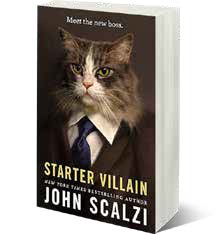When Stephen Crane published the “Red Badge of Courage” in 1895, the horrors of the Civil War were dim memories for the old men who marched in parades glorifying past battles. Yet, Crane, at age 24, with no military experience, was able to write a book that reveals the emotions men have faced during battle since the advent of war.The psychological similarities between what Crane’s character, Henry Fleming, experienced during the Civil War, and feelings expressed in letters I received from my brother during the Vietnam War are striking.For the average soldier, war hasn’t changed much over time. Weapons may improve, the reasons for going to war may vary, but overall, soldiers have to contend with the same internal conflicts. Will they be up to the task, or will they turn and run when the bullets start flying?Despite his mother’s pleading, Henry Fleming sets off to join the Union army with visions of glory and an uncompromised righteousness. Like most young men, he is both cocky and naive. While marching to Washington to join his regiment, Fleming receives food from women, along with praise and compliments from old men and young women. He begins to think of himself as a hero before he even reaches his unit.I remember the guys just out of boot camp who stopped by my school when classes were ending. Their uniforms were new and their bald heads were as shiny as their shoes. They, too, strutted around like heroes, and teenage girls hung on their arm. They looked great in their uniforms. It was 1966, and Vietnam was still a far-away unknown part of our world.Crane’s account of Fleming’s battle experience only covers a three-day time span, but it’s enough time to watch the transformation of Fleming from a swaggering kid to a battle-hardened man. As his regiment begins their march towards the front, Fleming reveals his first insecurities, asking fellow soldiers, “How do you know you won’t run when the time comes?”Fleming feels a coldness sweep over his back as he stares into the ashen face of the first dead solider he encounters in a field. The noise from the battlefield grows louder, bullets nip nearby trees, and shells scream overhead like banshees. Fleming is now in the thick of his first battle. He fumbles with his rifle, not sure whether or not it is loaded. It the middle of the chaos, he notices the beauty of the blue sky, wondering how nature can possibly be oblivious to what is occurring before him.He is ecstatic and proud when there is a lull in the battle. Looking around at his companions, Fleming thinks they are a magnificent group of men. But his joy is short lived as the barrage of shells begins again. Speaking in the vernacular, a comrade yells, “What do they take us for – why don’t they send supports? I didn’t come here to fight the hull damned rebel army.”Thick smoke rolls over the forest, breaking only to reveal hordes of enemy troops directly before them. A man near Fleming screams, throws down his rifle and runs; Fleming is directly behind him, running, stumbling, racing against death.Fleming’s journey from there is what actually makes him a man. He watches the protracted death of a friend from home. He wishes to god he was injured, so he would have an excuse to join the line of wounded men walking towards the safety of a field hospital. How Fleming received his “Red Badge of Courage” is not admirable. But he becomes an honorable person when he faces his demons, retraces his steps and joins his regiment to fight another day.My brother responded to my questions about patrolling an area outside DaNang, “I don’t know if I killed anyone, I kept my head down and fired, I only wanted to stay alive.” These words will never appear on any recruiting poster, and neither will the emotions expressed in the “Red Badge of Courage.” So, if your son or daughter is eager to join the service, give them a copy of this book. It may not stop them from enlisting, but it will give them a better idea about what it really means to be a hero.Note: On Thursday, March 30 at 6:30 p.m., the book club will be discussing “Into Thin Air,” by Jon Krakauer, a personal account of a disaster on Mount Everest. Stop by Espresso at Stratfords and join in the conversation.






